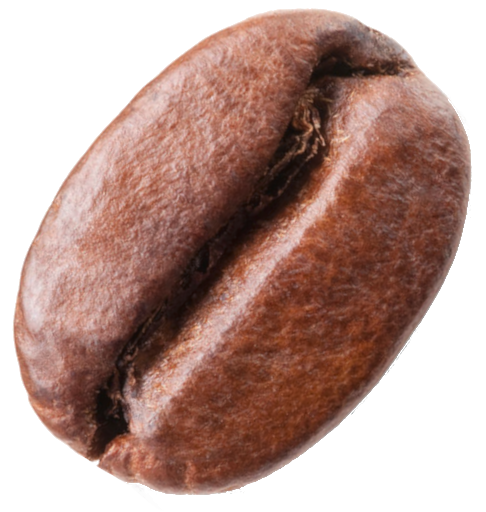The surprising impact of water quality on coffee brewing

The Hidden Ingredient in Your Cup: The Surprising Impact of Water Quality on Coffee Brewing
As a connoisseur of fine coffee, you’ve likely spent hours perfecting your brewing technique and experimenting with the ideal roast level and grind size. However, there’s one crucial element that often flies under the radar: water quality. The surprising truth is that the mineral content and pH level of your tap water can make or break your coffee experience.
The Chemistry Behind Coffee and Water
At its core, coffee extraction is a complex chemical reaction between water and coffee grounds. The ideal brewing temperature, water-to-coffee ratio, and grind size all play important roles in unlocking the flavors and aromas hidden within each bean. But what about the water itself? Is it just a neutral solvent or does it have an impact on the final taste of your cup?
The Perfect Water Balance
While many coffee aficionados focus on achieving the perfect water temperature, they often overlook the importance of mineral content. Too soft water can result in a flat and underwhelming cup, while too hard water can lead to bitter and harsh flavors. This is because minerals such as calcium and magnesium have unique properties that affect how efficiently flavors are extracted from the beans.
For instance, hard water with high levels of calcium ions can lead to an over-extraction of certain compounds, resulting in a bitter taste. On the other hand, soft water with low mineral content may struggle to extract sufficient flavors from the beans, leading to a weak and sour-tasting cup. The key is finding that perfect balance – one that extracts just enough flavors without overpowering them.
Impact on Your Coffee Machine
But the impact of poor water quality goes far beyond the taste of your coffee. Scale buildup, for instance, can cause clogs in your machine’s water lines and even reduce its heating efficiency. This can result in inconsistent brewing temperatures, affecting not only the flavor but also the aroma of your cup.
Scale buildup can also shorten the lifespan of your machine, making it more prone to repairs and potentially leading to costly replacements. In addition, poor water quality can increase energy consumption, further exacerbating the financial burden of owning a coffee machine.
Solutions for Better Water Quality

Fortunately, there are several solutions available that can help improve your tap water’s mineral content and pH level:
1. Know Your Water: Before making any changes to your water treatment system, it’s essential to understand the characteristics of your tap water. This includes testing for hardness levels, checking local water quality reports, and analyzing the mineral content.
2. Filtration Options: A variety of filters can be used to improve water quality, including carbon filters, ion exchange filters, and reverse osmosis systems (with mineral addition). Specialized coffee water filters are also available that cater specifically to the needs of coffee brewing.
3. Professional Solutions: For those who require a more comprehensive solution, installing a dedicated water line filter or using calibrated water treatment systems can provide a long-term answer to improving water quality. Regular water quality monitoring is essential to ensure the effectiveness of these solutions.
Best Practices for Water Management
To maintain optimal water quality and prevent scale buildup, it’s crucial to adhere to a regular maintenance schedule:
1. Regular Maintenance: Replace filters according to the manufacturer’s recommendations, clean the water reservoir weekly, and descale your machine as advised.
2. Water Temperature: Use fresh, cold water between 195-205°F (90-96°C) for each brew, avoiding hot tap water or distilled/softened water.
3. Storage and Handling: Clean the water containers regularly and avoid storing water in plastic containers for extended periods.
Warning Signs of Water Problems
Keep an eye out for these warning signs that indicate poor water quality:
- Unusual taste or odor in your coffee
- White residue on surfaces or inside your machine
- Longer brewing times or inconsistent water flow
- Strange noises during brewing
By recognizing and addressing these issues early, you can prevent costly repairs and ensure a consistent supply of great-tasting coffee.
Investment in Water Quality
While investing in water quality may seem like an added expense at first, the long-term benefits are undeniable:
- Extended machine lifespan
- Consistent coffee quality
- Reduced maintenance costs
- Better tasting coffee
- Lower repair expenses
In conclusion, the importance of water quality cannot be overstated when it comes to coffee brewing. By understanding and optimizing your tap water’s mineral content and pH level, you’ll unlock a world of flavors and aromas in every cup.
So next time you’re reaching for that perfect cup of joe, remember: the secret ingredient isn’t the beans or machine – but rather the humble glass of water.

What a fascinating article! I’d like to extend my congratulations to the author for shedding light on this often-overlooked aspect of coffee brewing. It’s crazy how much of a difference water quality can make in the taste and aroma of our daily cups.
I’m curious, though – what’s your take on using tap water with high levels of lead or other contaminants? Should we be prioritizing the use of filtered water for brewing, even if it means investing in more expensive equipment?
What a wonderful article! I’m reminded of a conversation I had with a coffee roaster friend who was experimenting with using different types of water in his brewing process. He discovered that using water from a natural spring resulted in a more nuanced and balanced flavor profile, while tap water led to a slightly bitter taste. This got me thinking about the potential for water quality to impact not just our coffee, but also our overall well-being. What if we could harness the same principles of water quality optimization to create healthier communities?